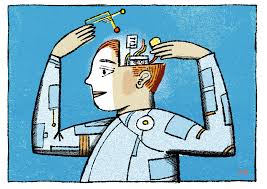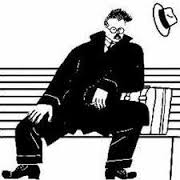The Slaughter-Bench of Race
It seems that it is an everlasting open hunting season in the United States and the kills are Black men. The senseless killing of unarmed Black young man Michael Brown by a White police officer and the grand jury’s decision to allow the officer to walk without facing a trial through a faltering prosecutorial process (that aims to defend when the target of indictment is a police officer) has brought Ferguson, Missouri, and other communities across the country to their feet in loud and incendiary protest.
Approximately 50 protesters on a 120-mile march from Ferguson to Jefferson City decrying the shooting death of Brown were met with counter-protesters all along the route. Especially stomach-churning was the reception given to the protesters in the sleepy hollow of Rosebud, where the caterwauling and public scouring was most intense as 200 residents screeched at the protesters to “go home and get jobs” along a route littered with 40-ounce beer bottles, watermelons, Confederate flags and fried chicken, and where at least one concerned citizen was wearing a makeshift white hood, redolent of the vile knights of the “Invisible Empire.”
While the corporate media has suggested that the violent response by some protesters – property damage and looting in some instances – diminishes the authentic call for “change” – i.e., a demilitarization of the police, improved police-community relations, urban job creation, increased sensitivity training regarding race among police force recruits – it is hard to ignore the storied observation by Frantz Fanon that violence is oftentimes the only possible response by communities that have lived through centuries of violence – slavery, joblessness, poverty, police profiling, the school-to-prison pipeline and a military-industrial complex that thrives upon the deaths and killing of Black and Brown young men.
In the wake of this blow to the Black community, we have seen a string of similar White police killings of unarmed Black men and an unwillingness to indict them. These include the killing of Eric Garner who was caught on video repeating the words, “I can’t breathe,” 11 times as a New York Police Department officer had him in a chokehold that has been banned by the NYPD for years; the killing of Rumain Brisbon in Phoenix, Arizona; the killing of a 12-year-old boy, Tamir Rice, who was holding a toy gun in a park and shot within two seconds of police arriving on the scene; and the killing of Akai Gurley, a young man who was fatally shot by a rookie NYPD officer in a dark public housing stairwell in Brooklyn. With the growing confidence among White police officers that Black men are fair game for killing without consequences, how many more of our Black children’s lives will we lose?
In the cases of Eric Garner, Tamir Rice and Akai Gurley, the police did not make any effort to assist their dying victims. In the case of Gurley, the officers who shot him – in true “cover your ass fashion” – decided to text their union representative while ignoring calls from the police and medics. Six and a half minutes went by before they finally radioed for assistance. It wasn’t until a detective and FBI agent arrived at the scene of the Tamir Rice slaying that the victim received any first aid. In Eric Garner’s case, numerous police officers stared at his unconscious handcuffed body for seven crucial minutes instead of performing urgent CPR or frantically seeking professional medical assistance. In the case of Michael Brown, we know that his body lay lifeless on a Ferguson street for four hours before it was carted off to the local morgue. While some have attempted to justify police killings of Black men as a function of the job demand for quick decisions and their own survival instincts, this unconscionable and merciless failure to attempt to save these men’s lives, points to something much deeper.
Astonishingly, we are now hearing backlash against protesters that Black men must be suicidal since they are acting in ways that are surely to get them killed. It seems no matter what the circumstance, the narratives shift in order to maintain the sanctity of the White cop. The institutionalized and pretentious discourse of conservative talk show hosts now includes remarks to the effect of: “If Garner can say ‘I can’t breathe’ 11 times, then he can breathe” (obviously these self-proclaimed “critics” don’t realize that being pinned down by police may prevent lungs from re-expanding, forcing out the functional reserve capacity of air while the expiratory reserve volume – which is not oxygenated and basically exists as carbon dioxide gas – still permits vocalization). This vicious insensitivity from the frenetic ranks of these racist prodigies have ripped away any cosmetic prostheses hiding the seething subterranean animus of the White population who have inherited a historical proclivity to blame Blacks for their own suffering and who continue to do so with an increasingly smug impunity.
Given the rancid history of racial violence in the United States, should we be aghast at the audacity of White police officers who continue to shoot first and show little restraint prior or remorse after, and at the imperviousness of prosecutors and grand juries that see only through the dominant lens, justifying the growing epidemic of Black killings by White cops as a “natural” reaction to fearing for their lives? Protesters are demanded to show restraint in a country that has shown no restraint in killing Black communities and other communities of color – physically, psychologically and economically. While we do not advocate for violence, we understand how centuries of pain and humiliation can result in a pent-up rage that eventually explodes.
More recently, African-Americans face the grim new reality of moving from the super-exploited sector of the working class to being even more marginalized as capitalists switched from drawing on Black labor in favor of Latino/a immigrant labor as a super-exploited workforce. As a result of increased structural marginalization, African-Americans are subject to whatWilliam Robinson describesas “heightened disenfranchisement, criminalization, a bogus ‘war on drugs,’ mass incarceration and police and state terror, seen by the system as necessary to control a superfluous and potentially rebellious population.”
Racism is not a natural phenomenon, but one that has been produced within each and every institution of our society. Racism is exacerbated through a capitalist production process that teaches us that some people have a God-given right to pursue their own economic and social interests with little regard for the right of every human being and other living organism to thrive in the world free of fear for their own survival and with dignity and freedom. Racism stems from a world that has lost its ability to recognize its social nature and absolute need to love one another. While we must work to make people safe today, we must also consider the long-term goal of anti-racist struggle, which in our view is one and the same as class struggle, such that a new world order, one free from class and founded on love, interdependence, social responsibility, equality and freedom can thrive.









 Users Today : 32
Users Today : 32 Total Users : 35460163
Total Users : 35460163 Views Today : 49
Views Today : 49 Total views : 3418832
Total views : 3418832